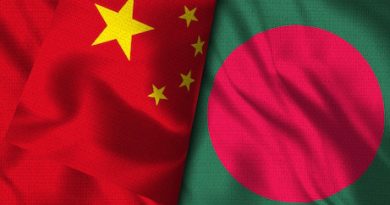Banks are meant to be the custodians of public trust. When citizens deposit their savings, they expect not only security but also accountability. Yet across South Asia—and particularly in Bangladesh—the rising tide of irregularities, default loans, and weak supervision raises a haunting question: who truly guards the banks?
The events of the last few years have exposed a systemic failure in oversight. From ballooning non-performing loans to politically influenced lending, the financial sector has been beset by scandals. The crisis is not one of numbers alone but of confidence in regulators, boards of directors, and the very idea that banks are meant to serve depositors rather than power brokers.
Watchdogs or Sleeping Guardians?
The Bangladesh Bank, in principle, is the supreme watchdog of the financial system. It has both the authority and mandate to enforce prudence, discipline, and transparency. Yet its independence has often been questioned. Political interference in the appointment of top officials, coupled with pressure to accommodate influential borrowers, has eroded its credibility. Instead of being an uncompromising guardian, the central bank often appears as a hesitant referee. Loan rescheduling policies that favor defaulters, the lack of timely intervention in troubled banks, and the tolerance of repeated irregularities raise the suspicion that regulators are more interested in preserving appearances than enforcing accountability. This is not a problem unique to Bangladesh. Globally, after the 2008 financial meltdown, many central banks and regulators were accused of “regulatory capture”—prioritizing the interests of banks over those of citizens. But in Bangladesh, where trust in institutions is already fragile, the costs are even higher.
Boards Without Accountability
If regulators are one pillar of guardianship, boards of directors are the other. Unfortunately, many bank boards are not composed of seasoned professionals or independent thinkers but of politically connected individuals. This weakens corporate governance at its very core. The absence of accountability mechanisms means that decisions about large loans, risk exposure, or branch expansion are often influenced by personal gain rather than long-term stability. In several cases, banks that collapsed under the weight of bad loans were overseen by boards that had actively encouraged reckless lending. Without reforming the governance structure of boards—ensuring fit-and-proper criteria are applied strictly and appointments are free from political bargaining— no amount of regulation from above will be enough.
The Silent Stakeholders: Depositors
Perhaps the most overlooked guardians of banks are the depositors themselves. In theory, a vigilant customer base can exercise pressure on banks through their choices—shifting deposits away from poorly governed institutions. In practice, however, ordinary citizens rarely have access to clear, comparable information about bank health. They write annual reports using terminology that’s hard for outsiders to understand, regulatory disclosures are patchy, and independent credit ratings are limited in scope. As a result, depositors continue to keep their life savings in institutions whose foundations are Insecure, unaware of the risks until a crisis erupts. Financial literacy campaigns, greater transparency in publishing data, and deposit insurance mechanisms must empower citizens to act as informed stakeholders rather than passive victims.
Technology as Guardian or Risk?
The digital revolution in banking offers both promise and peril. Artificial intelligence, blockchain, and real-time transaction monitoring can make oversight sharper and more predictive. Algorithms can flag suspicious patterns long before human auditors detect them. Yet, technology is no magic bullet. Without robust governance, digital systems can also be manipulated, data privacy violated, and cyber risks multiplied. As Bangladesh moves toward smart AI banking, the guardianship question extends beyond fraud and defaults to include cybersecurity and AI ethics. Who ensures that algorithms themselves are not biased, misused, or exploited?
International Lessons
Other countries offer useful lessons. After the Asian financial crisis of 1997, South Korea radically restructured its banks, enforcing stricter disclosure rules and encouraging mergers to create stronger institutions. In India, the Insolvency and Bankruptcy Code has given regulators more tools to recover bad loans. In Kenya, mobile banking platforms like M-Pesa are regulated under a tight framework that balances innovation with consumer protection. Bangladesh cannot afford to ignore these examples. The global banking environment is interconnected, and weak domestic institutions expose the country not only to internal shocks but also to external vulnerabilities.
Toward a New Guardianship Policy
If banks are to be rescued from this cycle of mistrust, a new guardianship framework must be built on three foundations: 1. Regulatory Independence: The central bank must be free from political influence, with clear legal protection for its autonomy. Its decisions should be transparent and subject to parliamentary scrutiny rather than executive pressure. 2. Governance Reform: Boards of directors must be selected on merit, integrity, and expertise. Independent directors should play a real role, not serve as symbolic appointments. Fit-and-proper tests should be enforced without exceptions. 3. Public Empowerment: Citizens need to be empowered with knowledge. From publishing NPL data in plain language to strengthening deposit insurance, public trust will grow only when people feel empowered rather than helpless.
The Moral Imperative
Ultimately, the guardianship of banks is not only about economics—it is a moral question. Banks handle the hard-earned savings of citizens, the lifeline of small businesses, the dreams of students seeking education loans, and the futures of farmers investing in crops. Once this trust is violated, it damages more than just the financial system—it harms society itself.
Who Guards the Guardians?
The famous Latin phrase “Quis custodiet ipsos custodes?” which means, who guards the guardians? is as relevant today as ever. Regulators, boards, governments, and citizens must share the responsibility of protecting banks. But without transparency, independence, and accountability, guardianship itself becomes a hollow promise. Bangladesh stands at a critical juncture. The choice is clear-cut: continue tolerating a system where the guardians look the other way, or build one where oversight is real, impartial, and respected. The future of banking—and indeed the future of economic stability—depends on the answer.






